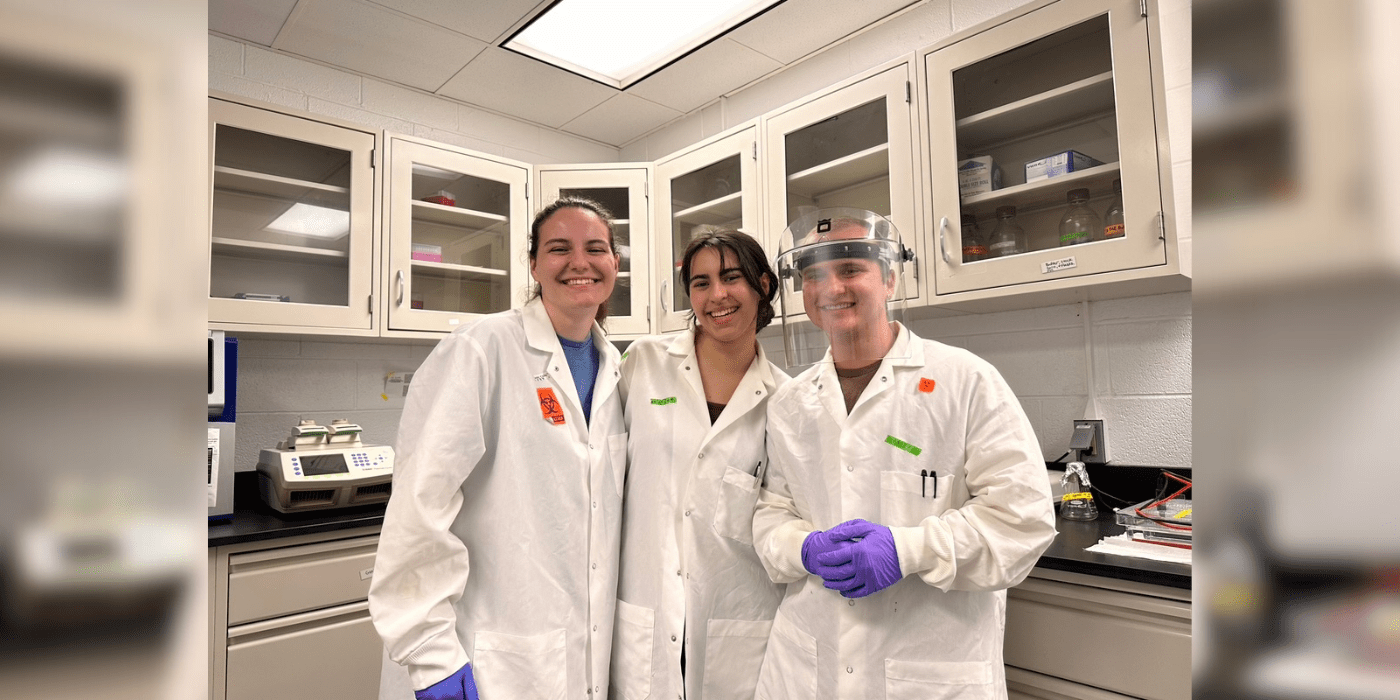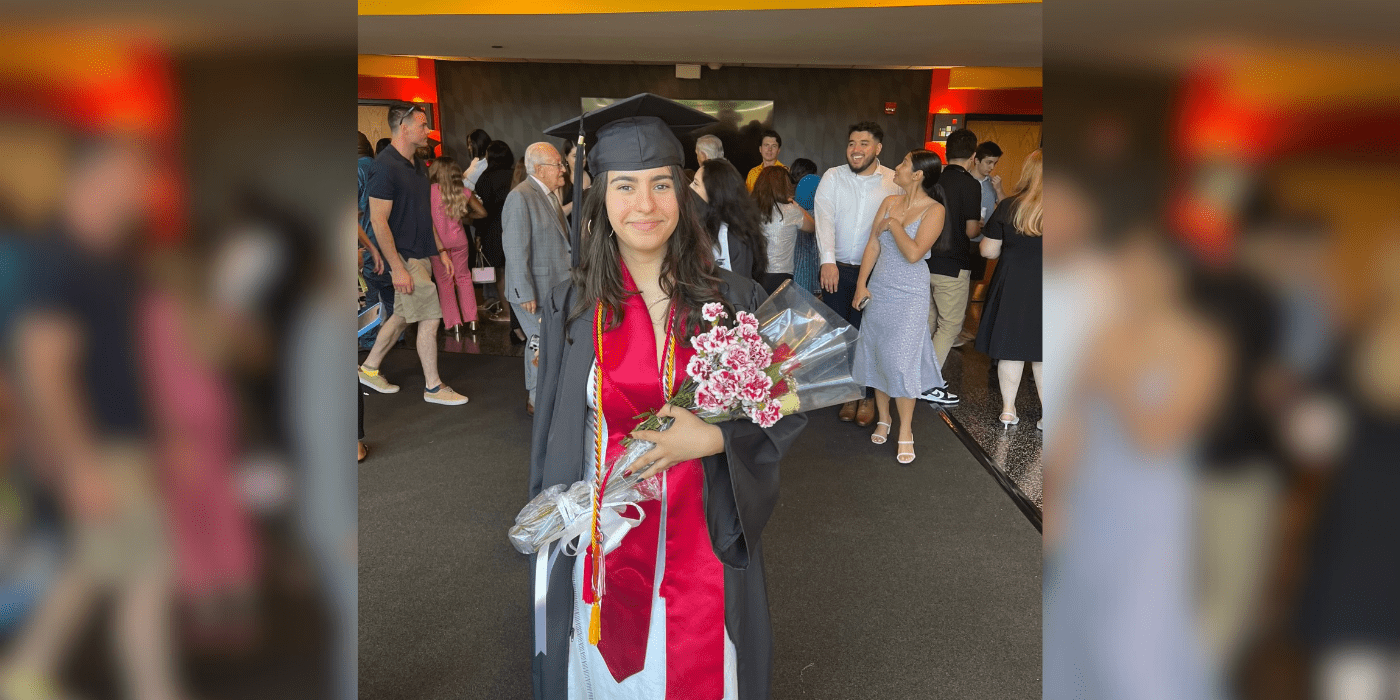
Just before the start of her freshman year, in the heart of the pandemic, Marina Costa ‘24 lost her father to cancer. Last month, she graduated with a University Honors Citation and a spot in George Washington University’s MPH program with a concentration in infectious disease epidemiology. Costa is also an undergraduate researcher on the Water Quality, Outreach, and Wellness (WOW) Lab team, where the research she helped conduct was presented the American Water Resource Association symposium.
Costa’s story is one of perseverance in grief and connection despite isolation. She sat down with Ian Schuster ’23, MPH ’24 to reflect on her experience at UMD and discuss her future in public health:
What inspired you to pursue a public health science degree?
My parents have chronic conditions. I didn't want to work in clinical medicine, I wanted to work in something that affected a larger population, rather than one-on-one doctor or nurse interactions. I wanted to work on a population level to prevent pain and suffering for an individual and their family before it even happened. Also, I find it really interesting to look at patterns of infectious disease in history and explore new technology to prevent it.
What was your favorite undergraduate course?
I liked Introduction to Infectious Disease Epidemiology (EPIB330) with Dr. Steven Ault – largely because I'm going into infectious disease epidemiology, but it was cool to learn about neglected tropical diseases and current outbreaks. In Brazil, where my family's from, I learned real-time what's happening with the dengue fever outbreak there.
What was your most difficult course?
Organic chemistry. I found the concepts of orgo fun and interesting, but the course moved so quickly, I would only understand a topic a month after we finished learning about it.
Which strategies did you use to keep up in your classes?
I never pulled an all-nighter unless it was for a project. I don't pull all-nighters because you're going to forget the stuff you learned and burn yourself out.
I also realized you can't reasonably learn everything, so just learn, say, three out of the five concepts on the test. Learn those really well, and then go do your best. Prioritize what you think you can actually get done, and it's okay to not get everything done.
What is your number one takeaway from your time as an undergrad researcher in Dr. Goldstein’s WOW Lab?
I'm working with these pathogenic microbes that I learned about in class in the WOW lab and it's a lot harder than I thought it would be. It's tedious, and it gave me a lot more appreciation for research, especially in a wet lab. Things need to be redone and archived, and everything has to be done to a T, and if it's not done to a T, guess what? You have to redo it.
I understand that you lost your father to cancer during your first year at UMD, in the middle of the pandemic. How does his memory drive you forward?
My father was a huge advocate for education, and he always knew more than me. He was a human encyclopedia. If anyone had a question, I’d direct them to my father.
I want to keep learning things that he doesn't know, and explain them to him. He's not here, but it's a nice way to keep him alive: to constantly be learning, getting excited about things and talking about my passion for epidemiology and infectious disease with other people. He was a huge nerd, and he passed that on to me.
What are your career goals?
I'm interested in working as an infectious disease epidemiologist. I think we need more people working in infectious disease because of climate change, especially working with vector-borne disease. I'm trying to keep myself flexible, though.
What is your advice to an underclassman?
Make friends within your major and study with them, because you're going to have labs with them and you're going to need help. Make yourself socialize. And don't pull all-nighters. Go to sleep!
I understand that it was important to your father that you get your degree. What do you think he’d say to you on Graduation Day?
He would be proud. He was proud even before he left because he knew I'd do it, and he'd be proud I'm going to George Washington University.
I am grateful for my family. My parents are incredibly loving. Having that support is what makes the difference. You can’t do all of this alone, you need someone.
My father would be excited to see what I'm going to do next, and I am too.
